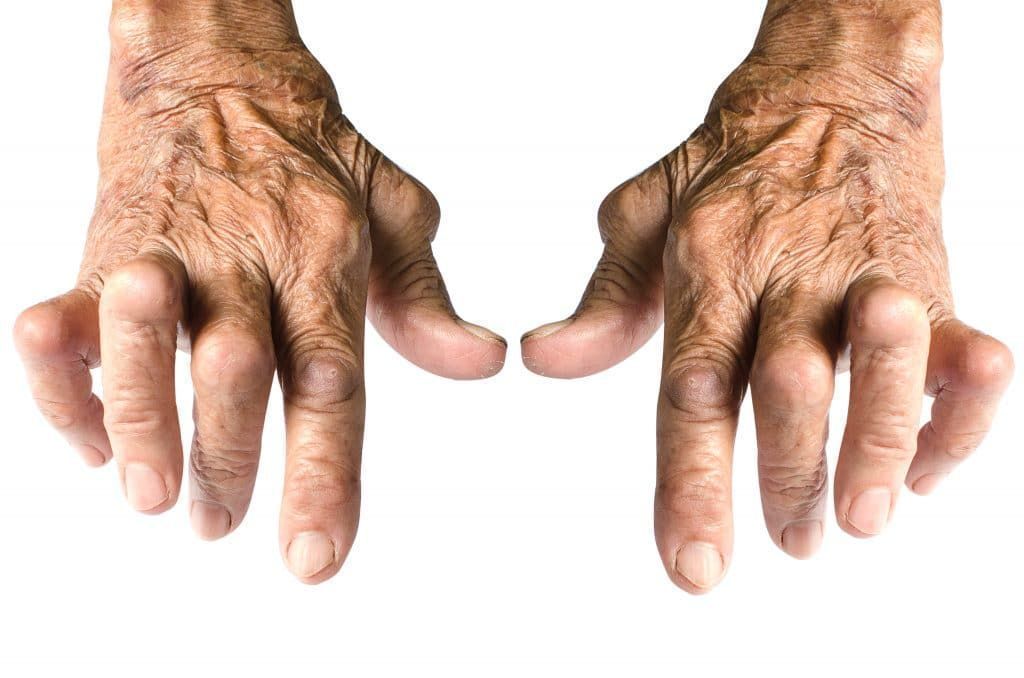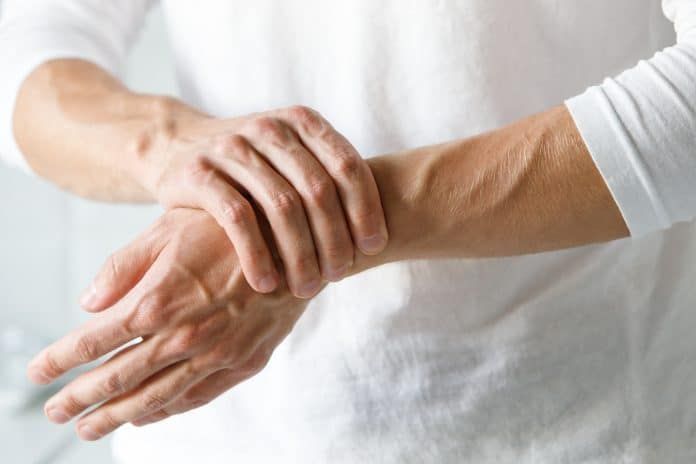Arthritis: symptoms, causes and treatments
Your joints are hurting ? Perhaps it is arthritis ? Yes, but which one ? Infectious arthritis, inflammatory arthritis, reactive arthritis… There is not one, but several types of arthritis ! Arthritis Health Missions helps you understand this very painful and disabling disease: symptoms, causes and treatments.
What is arthritis?
Often confused with osteoarthritis, which is due to an alteration of the cartilage, theArthritis corresponds to an inflammation.
Arthritis is a inflammatory affection, formerly called rheumatism, which can be acute or chronic and which can affect several joints at the same time. We speak then of monoarthritis when only one joint is affected and oligoarthritis when the inflammation affects several joints.
Hands, feet, knees, hips and vertebrae are the joints most affected. The joint then becomes hot, swollen, painful, stiff, The joint is sometimes red and in extreme cases becomes permanently deformed.
The pathology affects nearly one French person out of two, Arthritis affects women and men equally, and if it affects mostly people over 50 years old, it can also affect children.

What are the symptoms of arthritis ?
There are many forms of arthritis, but overall they all present the same inflammatory symptoms: swelling, stiffness, redness, heat sensation and disabling pain.
Arthritis has a specific characteristic that differentiates it from osteoarthritis: its pain wakes up at night. If the two pathologies present similar symptoms (cold pain for example), the pain of arthritis at rest is more severe more intense and the joints require a much longer unlocking (about 30 minutes, compared to 2/3 minutes for arthritis).
In concrete terms, to Identifying the symptoms of arthritis, Here are some clues:
- Your joints are stiff when you wake up and it takes time to regain their mobility.
- The pain wakes you up at night.
- Your joints hurt as soon as they become inactive again.
- Physical activity reduces your pain and restores mobility to your joints.
- Your movements are less ample.
- Depending on the type of arthritis you have, it may be accompanied by fever (especially infectious bacterial arthritis).
What are the causes ?
There are many causes of arthritis and therefore different forms of the disease.
Among the most frequent forms, there are :
- Infectious arthritis It is caused by a germ (generally a bacterium, but it can also be a virus or a fungus).
- Juvenile arthritis It affects children, often before the age of 16, and is said to be idiopathic. That is, its cause is unknown. It is a rare disease, with less than 1 case in 2000, which also affects girls as much as boys.
- Rheumatoid arthritis Arthritis is an autoimmune disease, which means that where the immune system is supposed to protect the body from infection, it attacks the body. In this case to the membrane that covers the joints. The cause of this inflammatory disease is unknown and unfortunately it cannot be cured.
- Gout This form of arthritis is caused by the formation of crystals (uric acid) in the joints. The immune system attacks these crystals and causes pain, redness and swelling of the joint.
- Ankylosing spondylitis Arthritis: affects the spine and sacroiliac joints. It is also an autoimmune disease where the immune system attacks the ligaments and tendons attached to the vertebrae. The bones eventually erode and the body, in trying to repair itself, forms new bone tissue that eventually fuses and fuses together. The spine becomes stiff and painful.
What are the possible treatments?
Treatments will also depend on the different forms of arthritis, but it is important to know that the pathology is not curable. treatments consist solely of relieving inflammatory symptoms and maintaining joint mobility.
- Medication It is essentially a question of anti-inflammatory drugs. They can be complemented by a basic treatment such as methotrexate which reduces the activity of the immune system.
- Surgery A synovectomy or a prosthesis can be considered in case of strong joint deformation.
- Physical activity Swimming, cycling or walking are beneficial to regain joint flexibility.
- Alternative medicines Acupuncture, homeopathy, phytotherapy, thermalism… There are several very effective alternative solutions.
- CBD The frequency: several studies have demonstrated the effectiveness of CBD products on arthritis. CBD oil, which you can find here, will provide lasting relief from joint pain and inflammation and will also help you sleep better.
Finally If your joints are hurting, do not hesitate to consult a doctor. The doctor will establish a precise diagnosis through a blood test or a joint puncture. An X-ray, sometimes an MRI or a CT scan will then identify the degree of joint damage.
